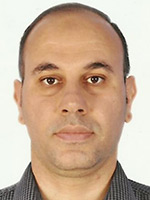
Serag Bensar
Liver research group at the University of Sheffield, United Kingdom
Biography
Serag Bensar is interested in medical education and teaching. He involved in teaching fourth and fifth years medical students at Garyounis University Medical School (Currently Benghazi University Medical School) the genuine recent name after 17 February revolution, as well as, Omar Al-mokhtar University. This involves the clinical teaching during the student’s attachment to the general surgery department. These teaching sessions follow a set syllabus and utilise various methods I am familiar with, such as ward-based teaching and based learning. In 2007 he started his post graduate research training at Royal Hallamshire hospital/ Sheffield/UK. He commenced with the liver metastases research group to conduct a number of experiments on the interaction between primary quiescent hepatic stellate cells (HSCs) and colon cancer cells. During that period a number of laboratory techniques have been learned, such as tissue culture, histological staining, images of florescence microscopy analysis, qPCR, western blotting technique and hepatic stellate cells isolation and identification from the rat liver. This project was supervised by Dr NC. Bird (Lecturer at the University of Sheffield Medical School). Our aims were to create a module of primary quiescent HSCs using Matrigel culture and then, illustrate the influence of the colon cancer cell lines (metastatic and non-metastatic) on the quiescent HSCs through a co-culture study. This study has published on Hamdan Medical Journal UAE

